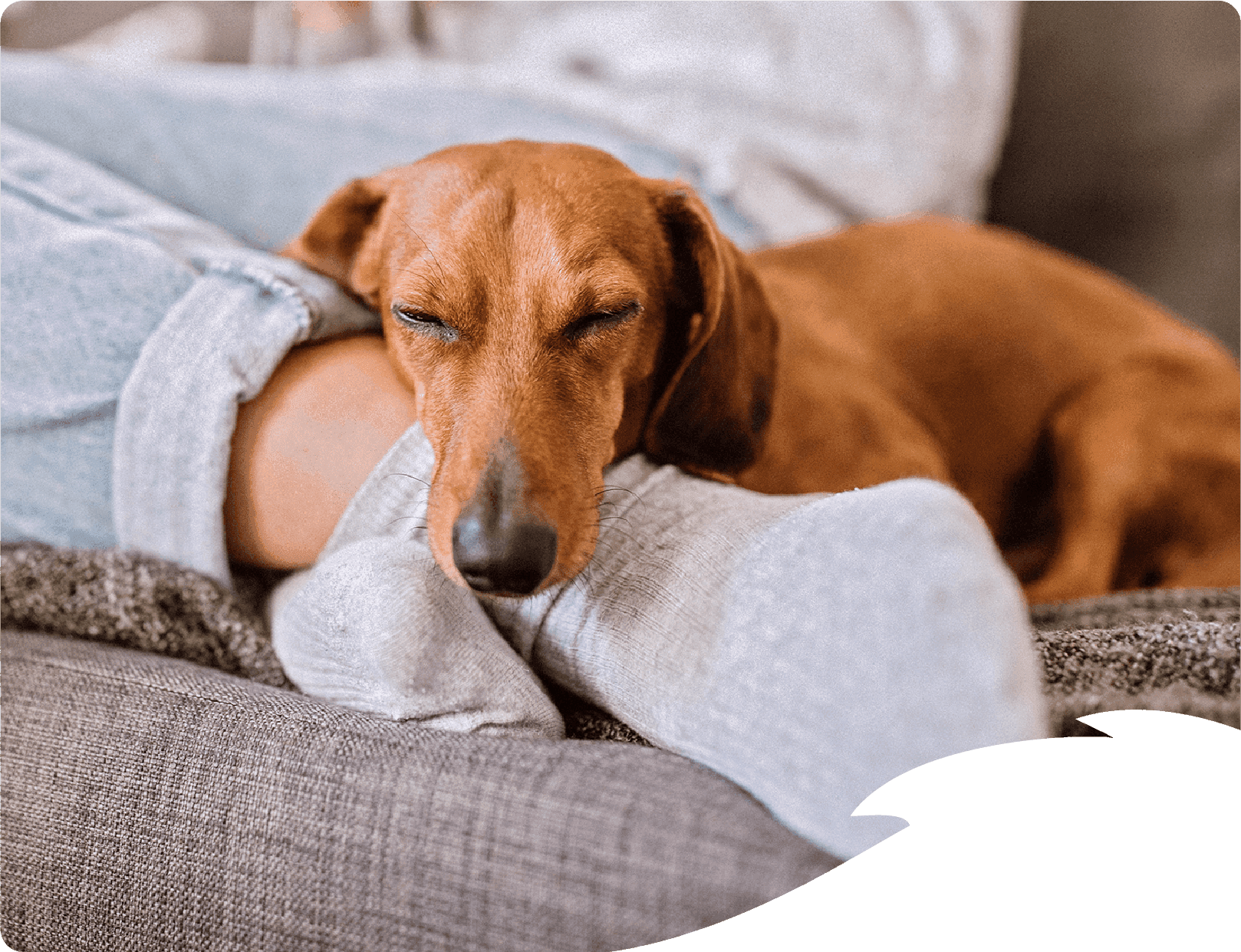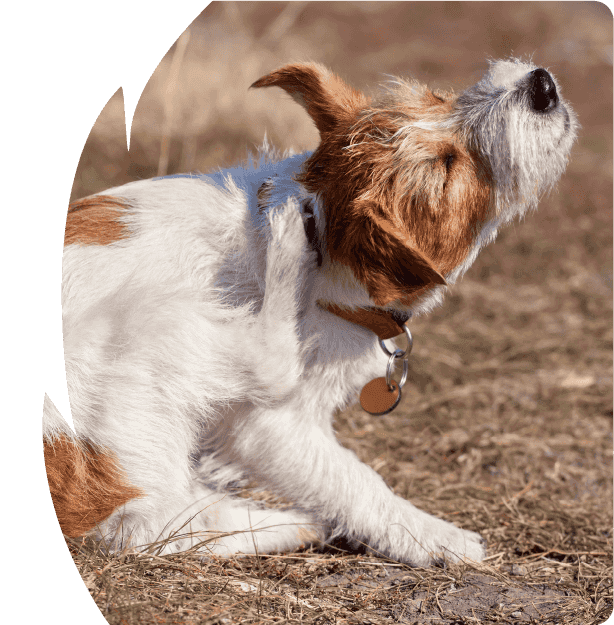Scratching for fun, or searching for comfort?

Scratching is one of the top three reasons why people take their dog to the vet*. It’s possible to spot the signs of irritation caused by skin conditions and treat them so your dog can continue to be their fun-loving and wonderful self.

Are they just scratching or is it something more serious? Try our simple online assessment and find out if your dog is showing signs of a skin condition.

Learn more about the signs of a skin condition

Spot the signs of an itch that
needs attention
Dogs love a good scratch, but how do you know when it's a sign of an underlying skin condition? It could be caused by fleas or other parasites, bacterial and/or yeast infections, or an allergic disease caused by something in the food or environment.
You know your pet better than anyone else, but if you see one or more of the following symptoms then we’d highly recommend getting in touch with your vet for advice and to learn about therapies available.
- Regularly, licking, chewing, rubbing, biting or scratching the same part of the body or scooting (rubbing the bottom along the floor)
- Redness, darkening of the skin, sores, scabs or scratch marks
- Hair loss, bald spots, or thinning of fur due to itching
- Preoccupation with rubbing the face, paws, sides or belly
- Less playing, eating, sleeping or other activities due to itching
If you’ve spotted one or more of these signs and want peace of mind, then get in touch with your vet for a full clinical examination. You can both help your dog live their best life. Don’t forget to try our online assessment first.
* Vet Rec. 2019 Oct 19;185(15):470-475. doi: 10.1136/vr.l6074. Small animal disease surveillance 2019: pruritus, pharmacosurveillance, skin tumours and flea infestations David A Singleton 1, John McGarry 2, Jose Rodríguez Torres 3, David Killick 2, Christopher Jewell 4, Steven Smyth 5, Bethaney Brant 5, Fernando Sánchez-Vizcaíno 6, Susan Dawson 2, Gina L Pinchbeck 5, Peter J M Noble 2, Alan D Radford 5 Affiliations expand • PMID: 31628231 DOI: 10.1136/vr.l6074
